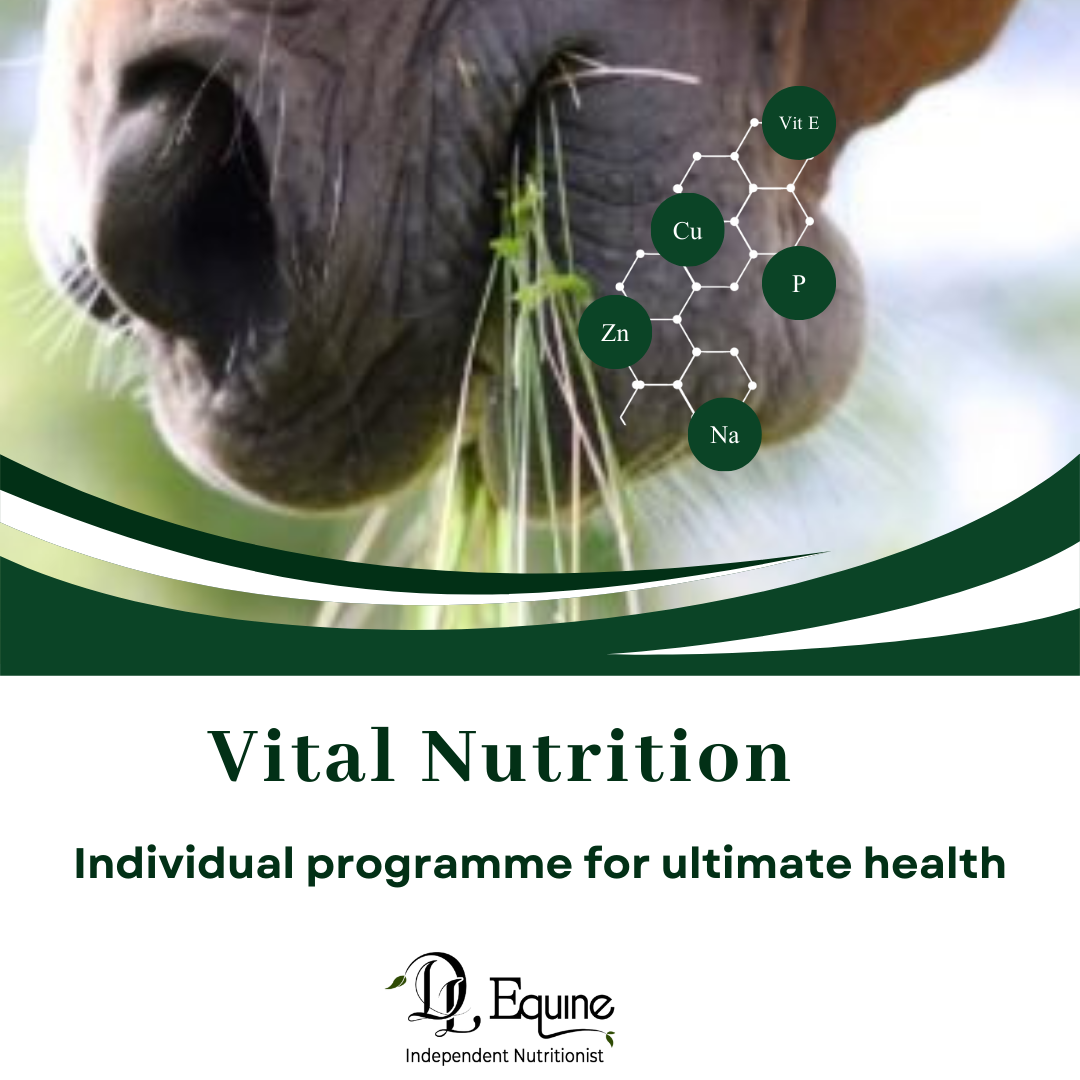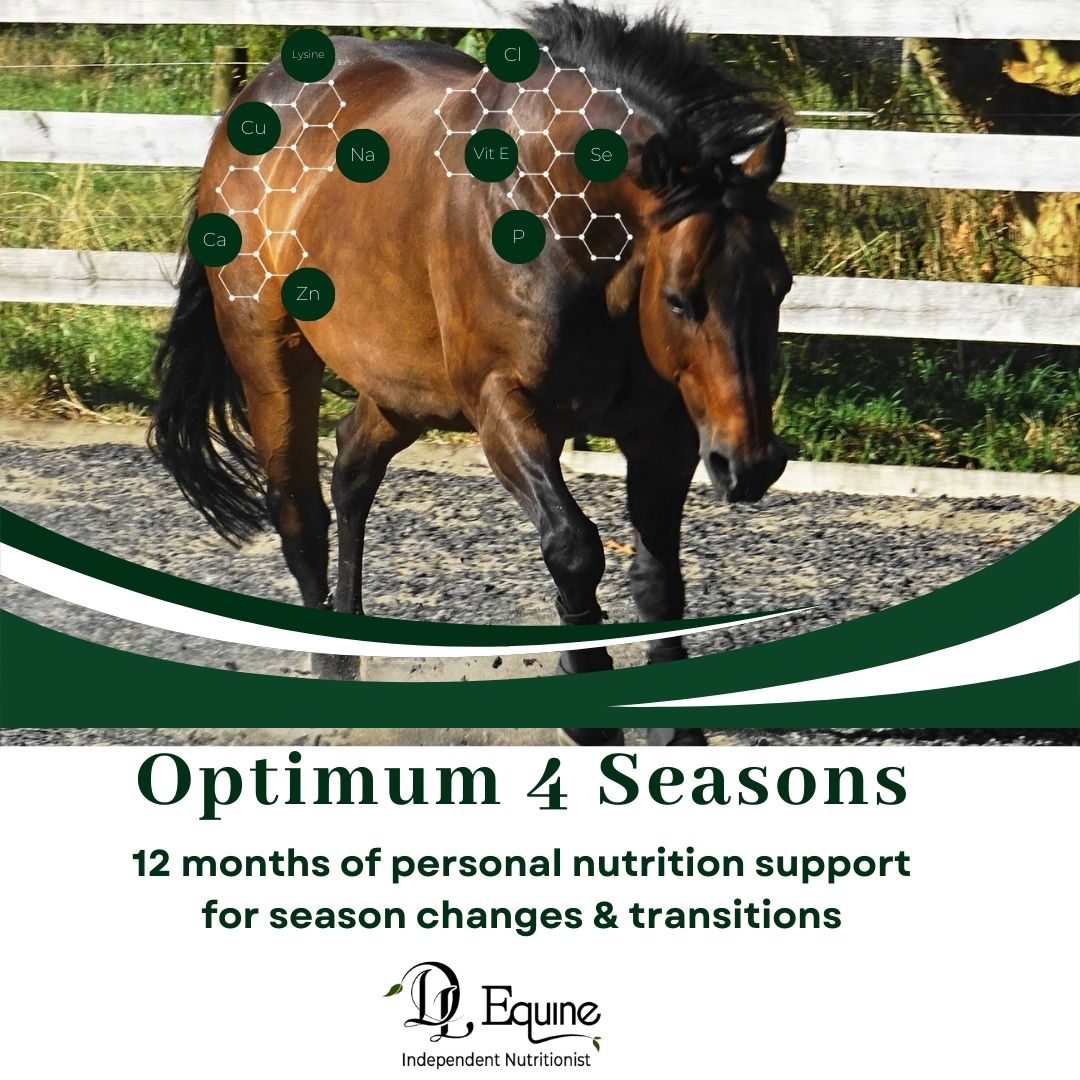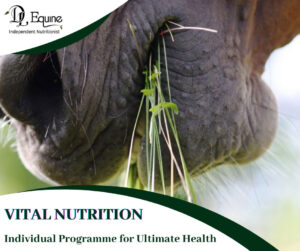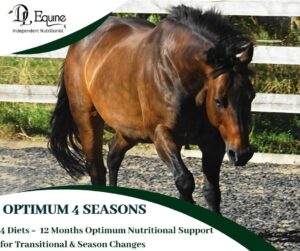So its that time of year again where the manufacturers of horse magnesium supplmentation are making a lot of money out of horse owners searching for some relief from the over excitables Autumn grass crazies.
However care is required when supplementing any mineral in your horse. Again and again I will calculate requirements Vs what owners are feeding and the magnesium supplementation is thru the roof, as in many folks are feeding 3 different types of magnesium products plus grass plus hay plus feed and the result is their horses magnesium sits at 300% to 400% of requirements!
I’ve personally always found magnesium supplementers to be in 2 camps;
- I see no difference but I feed it anyway cause Im too scared not to!
- I will swear on my last breath it made a difference to my horse!
So how about a fact finding magnesium mission for May…
Right now your horse is eating vivid green new pasture! Suddenly your horse has way too much energy and is spooking more than normal making your usual laidback ride feel like you’ve just been entered into the local rodeo!
Well meaning friends, and feed stores and social media keep telling you to feed more magnesium that it will cure all and turn your horse back into that unicorn you are used to!
Want to know if this is actually true? Is there actual science behind feeding more magnesium? Let’s break it down:
What is the function of Magnesium?
Magnesium is a major mineral involved in over 300 enzyme activities in the body. Yes, your horse requires the mineral Magnesium. In most cases your horse will need to be fed this mineral in its diet.
Up to 60% of the body’s Magnesium is found in the skeleton, with only 30% of that available for mobilization during times when it is needed elsewhere in the body. Magnesium works in concert with Calcium in activities such as nerve transmission and muscle contraction.
Within muscles Calcium and Magnesium work antagonistically: Calcium causing muscle contraction and magnesium – relaxation. Magnesium also directly competes with calcium for some of its binding sites, allowing greater binding of calcium to enzymes in hypomagnesaemia. It is also an important coenzyme for the sodium-potassium ATPase pump.
Magnesium is primarily absorbed from the small intestine and filtered by the kidney. Only 5% of the magnesium filtered by the kidney is excreted, and the remainder is reabsorbed.
What happens when your horse is Magnesium deficient?
Lack of magnesium in the diet and resulting magnesium deficiency can have varying symptoms which include nervousness, muscle tremors, hypersensitivity of the skin, increased body temperature during exercise, and ataxia.
Please note that behaviour issues from lack of magnesium can be quite different from an excess of sugar and starch in the grass or indeed mycotoxin ingestion e.g. lolitrum B.
In most horses eating too much high sugar grass results in too much energy!
Whilst Ryegrass toxins behaviour may start as anxious and will progress to things signs such as fine tremors, tetany (involuntary muscle contractions), incoordination and rapid eye movements.
The take away here is know your horse and take note of behaviour and type, dont lump it all in the same basket and expect one product to fix it.
Magnesium is essential for the functioning of a magnesium dependent enzyme called acetylcholine esterase. Acetylcholine esterase is needed for the breakdown of the neurotransmitter acetylcholine. During periods of magnesium deficiency, acetylcholine esterase does not function as it should and acetylcholine accumulates at the motor end plates causing neuromuscular excitability.
This accumulation of acetylcholine is likely to contribute to the tense muscles, incoordination, muscle twitches and spookiness seen in magnesium deficient animals. (Exert from Dr. Nerida Richards FeedXL)
How does your horse become deficient?
It is actually rare in our horses that are grazed at pasture to be Magnesium deficient as most grasses in NZ will have adequate Magnesium content.
What is much more common in reality is competitive mineral interactions, which result in magnesium intakes or availability below optimal levels. A particular scenario in our horses is the high potassium in our pastures which competes with magnesium for uptake within the gut.
High dietary potassium is also reported to reduce magnesium absorption in humans. While it is only through extrapolating from data in other animal species, it is likely that excessive potassium in the equine diet also reduces the absorption of magnesium in horses. What’s the harm in high Potassium?
Potassium is concentrated in the fluids inside the cell wall, each time the body has to use a nerve or a muscle, potassium is ejected from the cell and the change in ionic balance sparks an electrical impulse causing the cell to react, by contraction in a muscle cell.
Once the reaction has occurred, the original cellular balance between sodium and potassium is restored and the nerve or muscle will relax (potassium’s relaxing effect inside the cell is similar to magnesium’s outside the cell).” Excerpt from, “Minerals: The Metabolic Miracle Workers” by Dr. Robert Erdman and Meiron Jones. A diet that is too high in potassium means that the extra cellular fluid is permanently high in potassium. This upsets the delicate sodium: potassium ratio and hence, the nerves and muscles cannot relax.
Put this together with the fact that Potassium competes with Magnesium, this reduced absorption, coupled with a low magnesium concentration in the diet could result in an induced magnesium deficiency.
How can you determine if it is Magnesium deficiency making your horse nervous?
As stated above, Magnesium is stored in the bone and muscle, and only 1% of total body magnesium is found in the extracellular fluid, so blood Magnesium levels are a poor indicator of body Magnesium levels. Diagnosing deficiency is best done with muscle biopsy or dietary analysis, though deficiency would be unlikely in any horse with day-to-day access to good-quality forage.
Therefore, a pasture test analysing the mineral content of your pasture is an extremely useful way to accurately see what is available to your horse and what other minerals may be interfering.
However, another issue with lush spring or autumn pastures is that they can also have large amounts of nitrate accumulated in their leaves, especially when plants are very young and in the one or two leaf stage. In order to remove nitrate from the body, ruminants and horses bond the nitrate to a cation (a positively charged ion which includes calcium, magnesium, sodium and potassium) to form an ionic complex which is then excreted.
Professor T.W. Swerczek, a researcher with the Department of Veterinary Science at the University of Kentucky, USA has reported that when a sodium deficiency exists (which is common in grass-based pastures) nitrate is more likely to bond with calcium or magnesium, so under high nitrate conditions, a magnesium deficiency can occur.
Makes your life feeding horses difficult right?!
Unfortunately, there is very little research proving that supplementing extra Magnesium does for a fact calm nervous behaviour in horses. One (yup just the one) actual positive study to compare magnesium supplementation to a known sedative agent, was a research project conducted by equine scientists from Charles Sturt University in Australia and the Waltham Equine Studies Group in the U.K., where six Standardbred geldings were supplemented with 10 grams of magnesium aspartate. The horses were already being fed hay made from clover and ryegrass, a diet that contained the recommended daily intake of magnesium. However the research does not state thee horses levels before supplementation.
The average reaction speed response was measured before and after supplementation. The response after supplementation was reduced by more than one-third in these horses.
This suggests that magnesium aspartate may positively influence behavior in some horses.
There is of course much anecdotal evidence that suggests supplementation can improve anxious behaviour of horses. It’s important to note the study mentioned tested the usefulness of a magnesium supplement only in the short term; the amount of cortisol in the horses’ blood, which indicate the horses long-term stress level, did not change significantly with the supplement or the acepromazine.
How much Magnesium does your horse need?
According to NRC, an intake of 20mg of Magnesium per kilogram of bodyweight per day is necessary to maintain normal blood serum levels. Thus, for a 500kg horse in light to moderate exercise, an intake of 10g per day is necessary to maintain blood levels at the minimum value reported.
I have consulted on this topic with well-respected nutritionist from the University of Guelph, Canada, Dr Don Kapper, his response was that – ‘The feeding trials where extra Magnesium was given to ‘calm’ the horse, worked for very short period of time because the horse will begin ‘dumping’ the extra Magnesium in their urine, similar to what they do with excess Calcium.
Therefore, you can safely add up to 20 mg/kg of Body Weight/day, starting 30 days before these symptoms are known to begin, and continue for 30 days after the grass has slowed in its growth rate.’
These studies have shown that horses normally excrete dietary magnesium in their urine, and it took 13 days of feeding a magnesium-deficient diet before horses began to conserve magnesium or excrete less in their urine!
Oversupplementation is NOT Better!
Although excessive magnesium will be excreted in the urine, overdoses have been linked to decreased calcium and phosphorus uptake, compromised intestinal integrity, heart conduction problems and renal trouble, so it’s important not to over supplement.
No more than 30g of magnesium should be in the total diet as a safe upper limit. Remember thats calcualted from the total of EVERTHING you feed, grass, hay, feed AND supplements!
If you are feeding multiple supplements of magnesium at once this will imbalance the ratios of minerals and interactions in the body, can cause more harm than good and is costly. Magnesium should be fed in correct ratio with Calcium to the horse. That is less than 2 parts calcium to one-part magnesium.
Often horse owners will definitely see a positive change in their horse’s behaviour once they have feed a supplement. Often this can be due to multiple change in feeding practices, primarily due to removing the horse from problem pasture and at the same time the inclusion of a supplement which adds not only Magnesium but also other necessary minerals and vitamins such as Calcium, Sodium, Selenium and Vit B1 and B6.
Summary:
Consult an Equine Nutritionist and obtain a balanced diet for your horse. Balancing your horses’ diet is key. I can recommend a complete vitamin/ mineral supplement with the correct Magnesium content for your horse.
A nutritionist will provide a diet that is based on the correct forage, such as soaked mature grass hay low in potassium to help, along with alternatives to grain-based feed which can exacerbate nervous behaviour.
Start supplementation early – Before grass flush and continue for a month after. Do not feed all year, this will imbalance the precise mineral ratios and wastes $.
Also recognise high risk periods for your horse such as Spring and Autumn. At this time either remove your horse from the pasture or begin magnesium, sodium and vitamin B1 supplementation early!
Practice calming training methods –
You are dealing with a large flight animal. Supplementation is not the magic cure-all. Running away from scary things and shying are how horses cope with the world. Introduce a good method for relaxation into your training.
The Warwick Schillers and Tristan Tuckers of this world have great programmes that work!
If you horses diet is balanced and you still have issues with behaviour it is time to look into other factors such as a new modality of handling and riding or environmental stress.
Feeding extra minerals is not the answer in most situations.
Again I reccomend a pasture and hay anlaysis so we can work together and accurately give your horse that optimum nutrition and health.
Nutrition is the Science of Prevention
Happy Feeding
Resources:
Dodd J.A., D. G. (2015). Magnesium aspartate supplementation and reaction speed response in horses. Journal of Equine Veterinary Science 35, 401-402.
Harrington D, Walsh J. Equine magnesium supplements: Evaluation of magnesium oxide, magnesium sulphate and magnesium carbonate in foals fed purified diets . Equine Vet J 1980.
Pearson, W., and J. MacNicol. 2017, Acute effects of a single-dose nutritional product on stress response and task completion in horses. Journal of Equine Veterinary Science 51:86-91.






